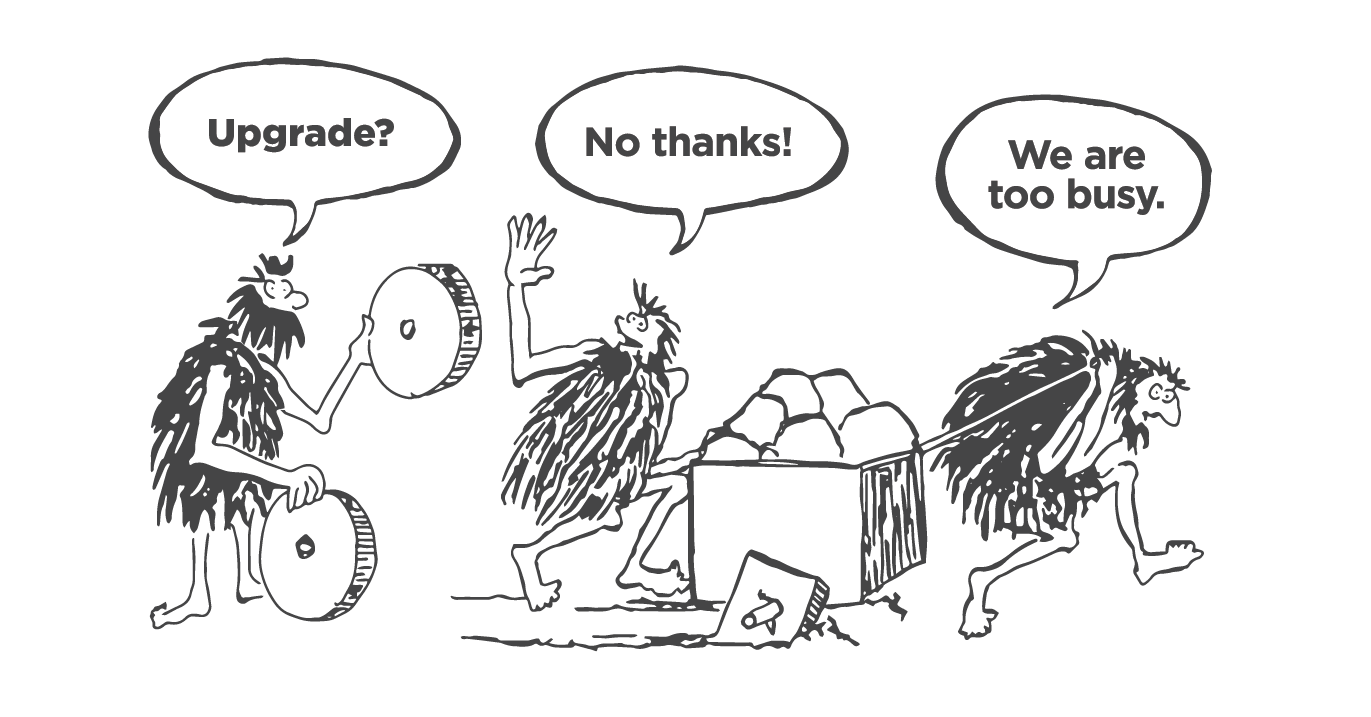
The construction industry is notoriously challenging, with long hours, tight deadlines, and complex projects. Not to mention the often thankless nature of blue-collar work. It’s no surprise that many construction companies struggle to stay afloat.
Data from the Bureau of Labor Statistics paints a grim picture of the industry’s success rates: almost half of the 69,296 private construction firms that started operation in 2001 went out of business in just three years! And it doesn’t get better: only 17.2% were still in operation 20 years later. That means a failure rate of nearly 83%! Let that sink in for a minute.

But what causes so many construction companies to fail? We spoke with Isaac Barlow, CEO of busybusy and a veteran of the industry with over 25 years of experience. With his wealth of knowledge and expertise, Isaac has seen firsthand why some construction companies thrive while others fail.
Failure To Track Data
Talking to Isaac, there is a pretty clear parallel between construction and professional sports… or at least there should be. Think about the way that professional sports teams track their data. Even you as an outside viewer probably know the best players, the team’s greatest strengths and weaknesses, and maybe even their odds of beating an opponent (Vegas here we come).
Tracking data is essential in sports and should be in construction too. In essence, crews need to be “keeping score” throughout a project and reviewing “game film” when it is completed. Construction companies are bound to experience problems like cost overruns, project delays, and quality issues without proper data tracking.
The sad truth is that many companies do not know where to begin… or worse yet, that they even need to track data in the first place. The good news is that technology has made this easier than it has ever been before. With the right software, construction companies can track their employee hours, project progress, and equipment usage in real time. This data can be used to make informed decisions that can increase efficiency and profitability.
By failing to track data, construction companies limit their potential for success. By investing in digital tools and prioritizing data tracking, companies can avoid costly mistakes and set themselves up for long-term success.
Toxic Culture
The second major reason that Barlow identified is culture. A toxic culture is the last place that any employee wants to be. This kind of environment can result from poor leadership, lack of processes, insufficient opportunity, or failure to recognize and reward high performance.
People often respond to the idea of something like sending employees on a paid vacation with, “well, I can’t afford it” Isaac’s response is that you cannot afford it because you are not running an efficient business that is driven by data. Businesses, even if they want to, cannot reward great performance unless culture and systems come together.
He continued to explain that the two things that make a great business are systems and culture… and they work together. You can have great systems and a poor culture, and you will never attract high producers. Or you may have a great culture but poor systems that will never allow the high producers to thrive.
Systems are necessary to help employees achieve their full potential. Rewarding this high performance is like using golden handcuffs–even if another opportunity is presented to top-tier workers, they will stay where they are recognized, rewarded, and have room to grow. Failure to build this type of culture has a much less desirable outcome, and before you know it, your best guy leaves your crew to become a competitor.
Raising Your Competitors
Far too often, skilled laborers are leaving their crew to go off and start their own thing. It is frustrating as a business owner to feel like you are spending time and resources training your crew only to have them leave when they have the most to offer–in essence, you are just raising your competition. Isaac explained why this happens, some of the negative consequences, and how to keep this from happening.
»busybusy Pro Tip
Improve your company’s retention rate today by following these easy tips.
🔗 How To Use Construction Company Benefits To Improve Employee Retention🔗
The primary reason this happens, as mentioned above, is because of cultural issues. High-performing employees need to be recognized and rewarded. After all, what is the point of doing the best work on the team if you get paid the same as the guy who does half the work? If there is no incentive, high performers will go find one. That often means starting they are more directly rewarded for the work they do.
The problem this creates is that the traits and skills that made them great employees are not the same as the ones they need to be great leaders. Without the right systems in place, this same person will end up spending too much time working “in” their business (because that is what they are good at) and not enough time “on” their business. Unless a shift is made, another toxic culture will be created, and the cycle goes on.
Conclusion
From hiring the wrong people to poor project performance, there are many other reasons why new construction companies fail. However, Isaac showed us how many of these are connected. Failure to track data creates poor systems. Poor systems result in a toxic culture and people leave.
If you want to be part of the 17% of companies that weather the storm, learn from the 83% who didn’t make it. Track your data, create a rewarding culture where employees can grow, and become the kind of leader who focuses “on” the business rather than spending all your time “in” the business.











